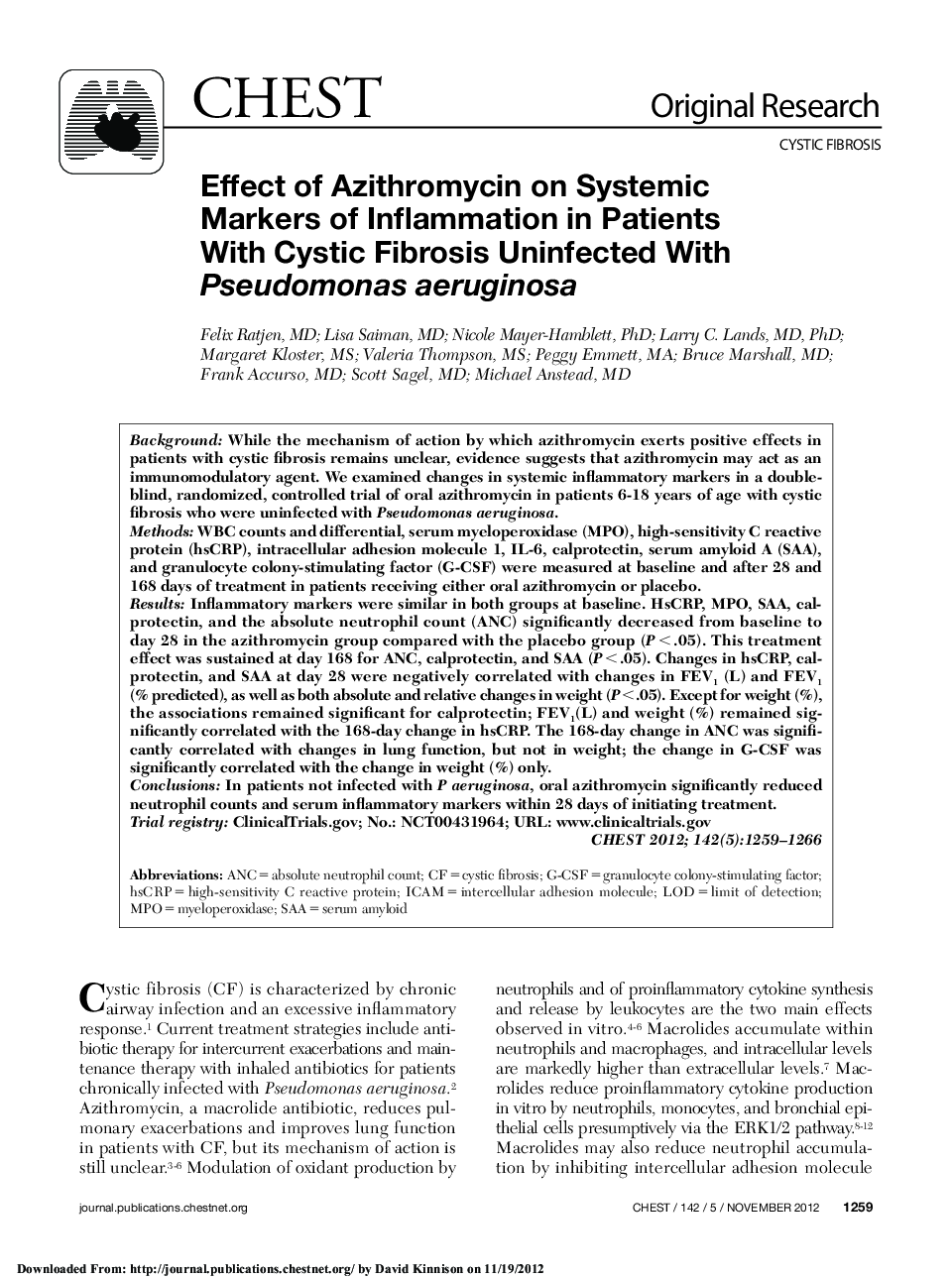| کد مقاله | کد نشریه | سال انتشار | مقاله انگلیسی | نسخه تمام متن |
|---|---|---|---|---|
| 2900998 | 1173342 | 2012 | 8 صفحه PDF | دانلود رایگان |

BackgroundWhile the mechanism of action by which azithromycin exerts positive effects in patients with cystic fibrosis remains unclear, evidence suggests that azithromycin may act as an immunomodulatory agent. We examined changes in systemic inflammatory markers in a double-blind, randomized, controlled trial of oral azithromycin in patients 6-18 years of age with cystic fibrosis who were uninfected with Pseudomonas aeruginosa.MethodsWBC counts and differential, serum myeloperoxidase (MPO), high-sensitivity C reactive protein (hsCRP), intracellular adhesion molecule 1, IL-6, calprotectin, serum amyloid A (SAA), and granulocyte colony-stimulating factor (G-CSF) were measured at baseline and after 28 and 168 days of treatment in patients receiving either oral azithromycin or placebo.ResultsInflammatory markers were similar in both groups at baseline. HsCRP, MPO, SAA, calprotectin, and the absolute neutrophil count (ANC) significantly decreased from baseline to day 28 in the azithromycin group compared with the placebo group (P < .05). This treatment effect was sustained at day 168 for ANC, calprotectin, and SAA (P < .05). Changes in hsCRP, calprotectin, and SAA at day 28 were negatively correlated with changes in FEV1 (L) and FEV1 (% predicted), as well as both absolute and relative changes in weight (P < .05). Except for weight (%), the associations remained significant for calprotectin; FEV1(L) and weight (%) remained significantly correlated with the 168-day change in hsCRP. The 168-day change in ANC was significantly correlated with changes in lung function, but not in weight; the change in G-CSF was significantly correlated with the change in weight (%) only.ConclusionsIn patients not infected with P aeruginosa, oral azithromycin significantly reduced neutrophil counts and serum inflammatory markers within 28 days of initiating treatment.Trial registryClinicalTrials.gov; No.: NCT00431964; URL: www.clinicaltrials.gov
Journal: Chest - Volume 142, Issue 5, November 2012, Pages 1259–1266